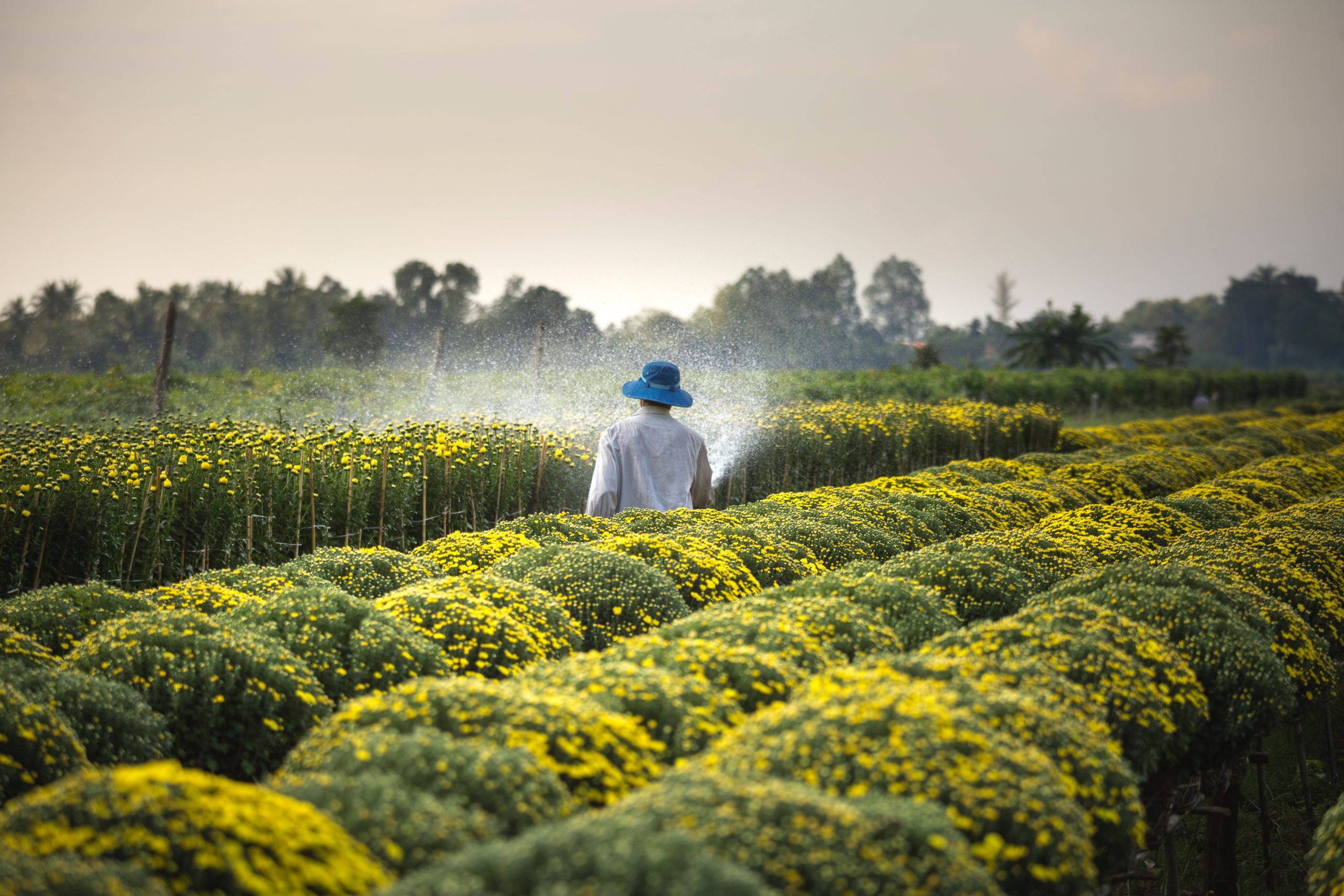In 2015, the International Agency for Research on Cancer reported that glyphosate is “probably carcinogenic to humans.”
Why should this worry you?
Glyphosate is the active chemical in the weedkiller Roundup. You may have heard of it. It’s likely you may have even used it yourself. That’s because Roundup is the highest-selling and most widely used herbicide in the world.
The IARC is part of the World Health Organization (WHO). According to them, glyphosate is a Group 2A chemical linked to certain types of cancers.
Lawsuits have targeted Monsanto, the creator of Roundup, and Bayer, who bought Monsanto in 2018. These lawsuits claim that Monsanto knew the harmful effects of glyphosate but didn’t do enough to warn the public.
In the last year, Roundup cases have gone to trial and settled with large payouts. Juries have found Roundup responsible for cancers like non-Hodgkin lymphoma (NHL). These verdicts have opened the door for more people affected by glyphosate to sue.
➔ Have you been using Roundup weedkiller on your lawn?
➔ Does your employer use an even more concentrated form of Roundup on their property?
If you suspect you’ve been exposed, you should talk to an attorney about your rights. Harlan Law is helping clients file their Roundup complaints now. Read on to find out if you have a Roundup claim and call or text us at 619-870-0802 for a free case evaluation.
You deserve compensation for any harm you may have suffered to your health.
Is Roundup Harmful to Humans?
Glyphosate is the main ingredient in Roundup suspected to cause cancer. Roundup and glyphosate are used in agriculture, forestry, lawns, gardens, and industrial areas.
What Is Glyphosate for and How Does It Work?
Glyphosate is a non-selective herbicide. It will kill most plants, weeds, and grass. The chemical works by stopping plants from making certain proteins that they need to grow.
 Many food crops are genetically modified to resist glyphosate. This way, farmers can spray their fields to get rid of the plants they don’t want while keeping their crops alive.
Many food crops are genetically modified to resist glyphosate. This way, farmers can spray their fields to get rid of the plants they don’t want while keeping their crops alive.
Unless you always buy organic non-GMO produce, many of the fruits and vegetables you eat have likely been sprayed with glyphosate.
Roundup also includes other chemical compounds, including surfactants. These help glyphosate penetrate the leaves of plants. Together, they make what’s inside Roundup even more toxic. Some researchers suspect the combination makes it easier for Roundup’s toxic ingredients to absorb into the human body – and into cell DNA.
How Do You Get Exposed to Glyphosate?
Exposure to glyphosate could happen if you get Roundup products on your skin, in your eyes, or if you inhale and breathe it in while you’re using it. You could swallow glyphosate if you apply it, forget to wash your hands, then eat or smoke afterward.
Because glyphosate doesn’t dry right away, you could be exposed if you touch plants that are still wet after being sprayed. This is especially a concern for children and pets who could touch, lick, or eat Roundup covered plants from the yard.
Even after losing multiple cancer-related lawsuits, Monsanto insists that Roundup is safe. This makes people more likely to underestimate the risks. As a result, you may have used Roundup without the proper safety gear to protect yourself. People have used Roundup for decades without masks, dressed in shorts and sandals –all because they didn’t know.
Roundup Health Risks
Cancer-related health risks are greatest for people who’ve had exposure to Roundup over long periods of time. You should be concerned if you’ve done any type of work that involves the use of herbicides, such as:
- Gardeners, landscapers, and weed-whackers

- Homeowners taking care of their yards
- Maintenance workers and groundskeepers
- Farmers and farmworkers
- Government and public lands employees
- Horticulturalists
In California, winemakers and vineyard workers are also at risk. Counties like Sonoma have banned glyphosate from public lands.
California has many agricultural counties affected by Roundup use, especially in the Central Valley. These include Monterey, Ventura, San Diego, Fresno, Tulare, Kern, Merced, and others.
What Type of Cancer Does Glyphosate Cause?
The biggest risk of Roundup exposure is cancer. Non-Hodgkin lymphoma is a type of blood cancer that starts in white blood cells. Other related cancers include:
- Lymphocytic lymphoma
- B-cell lymphoma (BCL)
- Chronic lymphocytic leukemia (CLL)
- Hairy cell leukemia (HCL)
Depending on the type, the cancer may be slow- or fast-growing. Early diagnosis is important and treatment can be expensive. That’s why you shouldn’t go about this alone.
There’s hope. The right personal injury lawyer can get you the resources and help you need. So far, cases have done well with juries in court against Monsanto.
Roundup and Glyphosate Cases: Lawsuit Update 2019
Thousands of Roundup cancer lawsuits have been filed in the U.S. The first cases have gotten large settlement payouts, paving the way for others who have been harmed.
- August 2018–A California jury ordered Monsanto to pay $289 million in damages to a school groundskeeper who claimed Roundup caused his cancer.
- May 2019–Another California jury awarded $2 billion in damages to a couple who both developed cancer after using Roundup on their property for decades.
The next glyphosate trial is scheduled in August 2019. It will be the first case to go to trial outside of California, in Missouri. And there are more on deck.
What Is a Mass Tort?
A mass tort or class action involves a large group of people harmed by one company in a similar way. In a class action, all of the cases are brought together and one “typical” case goes to trial. In mass torts, each case goes to trial with slightly different facts.
Many mass torts and class actions also come with products liability claims.
When there are enough cases for a mass tort, lawyers will file for multidistrict litigation (MDL). Because mass torts are often filed in different places, MDL helps federal courts manage all of the related cases and their facts.
Mass torts are good for you. It means your case is more likely to get traction. It’s an especially good sign if the first few cases get settlements and juries award damages, as they have here.
Making a Roundup Complaint
If you’ve been diagnosed with non-Hodgkin lymphoma or another Roundup related illness, you must file your claim as soon as possible to meet the statute of limitations. This is a set period of time you have to file a lawsuit after suffering an injury.
The Roundup case is huge, with a lot of information and complex legal concepts. You need to find a lawyer you can trust. That’s where we come in.
You can click here to read more about our seasoned California personal injury practice.
Hiring a Lawyer for Your Roundup Lawsuit
The first step to filing a Roundup lawsuit is a claim review with a lawyer. We’ll go over the facts of your case and guide you where to go next.
A cancer diagnosis is difficult enough to deal with on its own. When someone else’s actions made you sick, you shouldn’t be on the hook for all the medical bills. If you’ve been harmed by Roundup, you deserve justice.
At Harlan Law, your first consultation is free. Our experienced personal injury attorneys are here to protect and fight for your legal rights.
Call us now at 619-870-0802 and let’s get started.
Sources: 1 2 3 4 5 6 7 8 9 10 11




